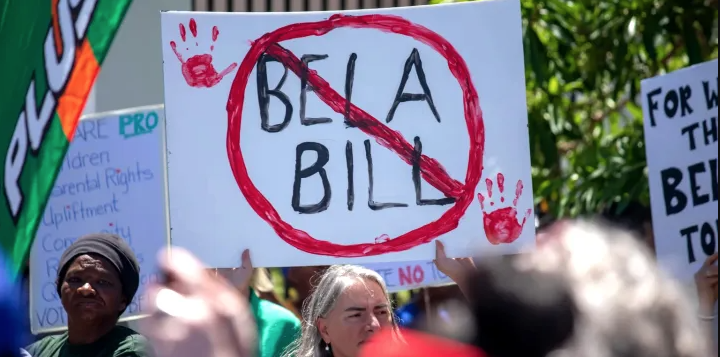411
Legal Battle Over New School Laws: BELA Act Faces Opposition from Solidarity and AfriForum

Opponents argue that the centralization of these policies will weaken the capacity of schools to provide mother-tongue education, particularly in Afrikaans. Proponents, however, contend that the changes will help prevent discrimination and promote equitable access to education.
Kallie Kriel, CEO of AfriForum, called the proclamation “an act of aggression” against Afrikaans schools and communities.
“The ANC is turning the government of national unity into a government of national disunity,” said Kriel.
Government’s Position and GNU Disputes
President Ramaphosa defended the decision, stating that the Government of National Unity’s (GNU) dispute resolution processes supported the full implementation of the BELA Act.
However, the Freedom Front Plus (FF+), a GNU partner, strongly opposes this claim. According to the FF+, the GNU task team recommended delaying the law’s implementation to allow for further consultation.
“The proclamation came without any restrictions or qualifications, contrary to the task team’s recommendations,” the FF+ stated.
Despite these disagreements, Democratic Alliance (DA) leader John Steenhuisen has called the implementation a “win-win compromise,” arguing that establishing norms and standards would protect language rights.
Solidarity’s Legal Action and Next Steps
Solidarity and its partners allege that both Ramaphosa and Gwarube acted irrationally by fully implementing the Act, ignoring previous recommendations for caution.
The groups have given the government ten days to resolve the dispute. Should no resolution be reached, they plan to escalate the matter to court.
Additionally, Solidarity hinted at a potential constitutional challenge to the BELA Act itself, citing concerns over its impact on mother-tongue education and school autonomy.
As the legal battle looms, the BELA Act’s implementation remains a flashpoint for South Africa’s education system. With language rights, community autonomy, and access to education at stake, the outcome of this dispute could shape the future of the country’s schools.
Follow Joburg ETC on Facebook, Twitter , TikTok and Instagram
For more News in Johannesburg, visit joburgetc.com















